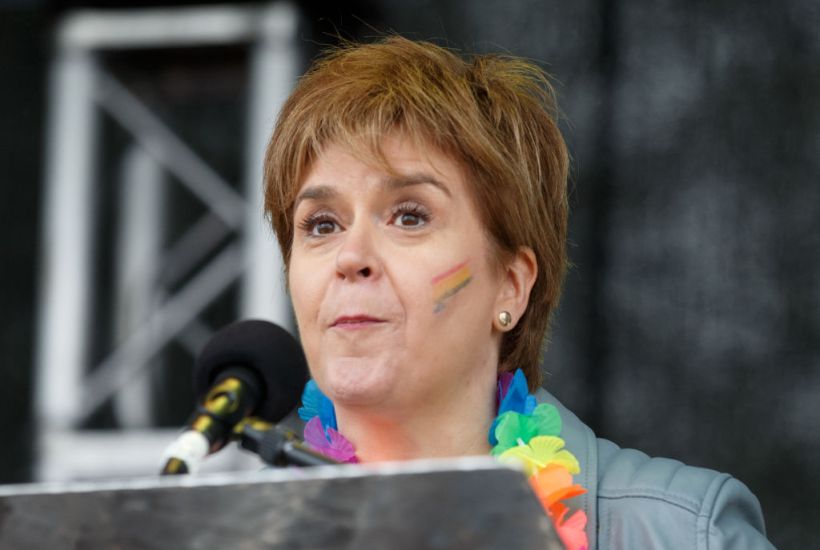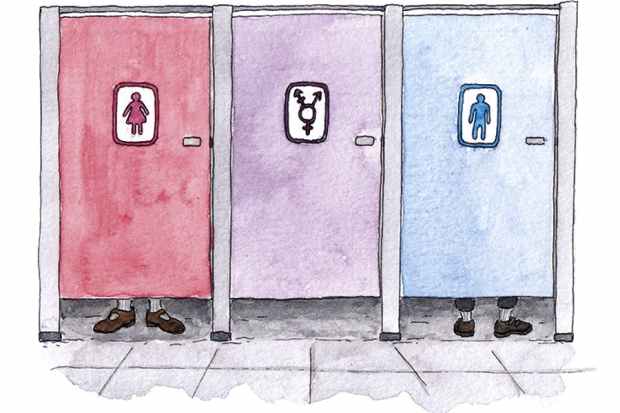For a party so devoted to trans rights, it seems strange that the SNP is less than forthcoming over its new definition of transphobia that their National Executive Committee adopted in recent days. The mind boggles over what they may be hiding.
Despite the twin pressures of Brexit and Covid-19, not to mention a key Scottish election three months away and the ongoing Alex Salmond affair, it seems that the party is prioritising the gender debate. As a trans person, even I am getting exasperated by this relentless focus.
Let’s be clear: transphobic hate crime exists but it is nowhere near as commonplace as the transgender lobby would like us to believe. Indeed, when Channel 4 checked the facts, they found that a trans person is less likely to be murdered than the average person in Britain.
Of course this doesn’t mean that some transgender people aren’t targeted for abuse. But thankfully this is why we have the Criminal Justice Act, which offers key protection in law for people like me.
Yet the SNP appears to have a milder form of transphobia in its sights: ‘misgendering and dead-naming people’ in the words of one SNP councillor. This smacks more of thought crime. And given how contentious the debate is on this subject, is it really something a political party should be tying itself in knots over? Shouldn’t the SNP wait for the dust to settle before wading in?
Whatever the purpose of the SNP’s new transphobia definition, it’s hard to know the truth because the adopted definition remains shrouded in secrecy. One possible version of the definition has emerged on Wings Over Scotland. The SNP has said that this was not the one passed by the party. But it is still likely to be instructive, given that it is probably similar to the version that was passed.
According to the leak, transphobia is defined as ‘Discriminatory or prejudiced language or actions relating to (someone’s) actual or perceived gender identity or gender expression or to trans people more generally.’
The scope is broad enough to include just about anybody who decides that the trans card is worth playing when someone upsets them or, quite frankly, merely disagrees with them. Here lies the problem: there is a world of difference between being beaten up in the street and being misgendered on Twitter. Conflating them trivialises serious crime and discrimination.
Having a stranger use your preferred pronouns without being prompted used to be one of the tests of a successful transition. But these days pronouns are demanded. Deliberate dead-naming – I think that would mean calling me David to niggle me – is perhaps boorish, but hardly hateful.
But the leaked definition presents a none-too-subtle message for those who may flout the rules: ‘we hope that this definition will guide members on their conduct’.
Perhaps more worryingly, the text suggests that the party ‘may seek discussions from an LGBTQ+ body such as Stonewall, Equality Network and Scottish Trans Alliance’. But are these organisations really impartial in what has become such a fractious debate?
Given that the SNP has said this definition is not the one passed, the party could do us all a favour by releasing the official version. But if this leaked version is anywhere close to being genuine the implications on the SNP’s code of conduct will be profound. If anyone upsets a transgender person, or more likely a member of the out-of-control lobby that purports to support us – they could be disciplined.
Scotland faces many challenges right now, not least in dealing with Covid-19 and shaping a path of recovery for an economy that has been battered by the pandemic. A generation of school children have also been kept out of the classroom for far too long. Yet it seems the SNP does not have its priorities in order.
What seems likely is that whatever the final wording of the definition adopted by the party, the momentum behind this SNP obsession with transphobia comes from the very top. Nicola Sturgeon has already clumsily waded in on this issue. And this focus on what is essentially for most Scots a trivial side issue looks set to continue. Come 6 May when Scots vote, the SNP might come to regret its transphobia obsession.
Got something to add? Join the discussion and comment below.
Get 10 issues for just $10
Subscribe to The Spectator Australia today for the next 10 magazine issues, plus full online access, for just $10.




















Comments
Don't miss out
Join the conversation with other Spectator Australia readers. Subscribe to leave a comment.
SUBSCRIBEAlready a subscriber? Log in